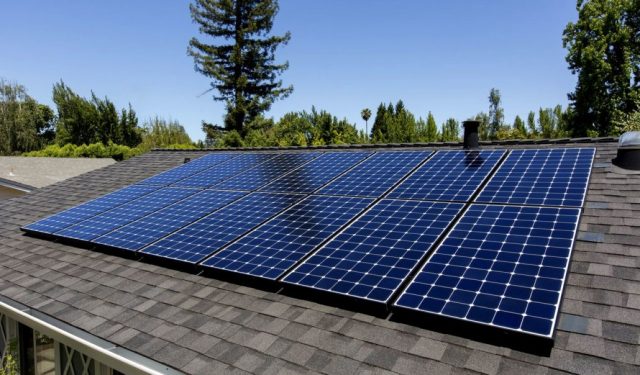There is no parity between the electrical systems used in homes and businesses. They are distinct from one another in terms of dimensions, hue, and general usefulness. Read this blog post to gain an understanding of the primary distinctions that exist between the two.
Solar farms, as well as a variety of enterprises, governments, educational institutions, and colleges, all employ commercial solar panels. Solar panels designed for residential usage are installed on roofs of structures, such as single-family homes and apartment complexes. There is a greater variety of commercial rooftop solar panels than there are residential ones since businesses have diverse requirements for their solar energy systems. The following is a rundown of the primary distinctions that can be drawn between residential and business solar panels:
1.Installation
Solar panels, which are typically mounted on the top of buildings, may be something you are already familiar with. The installation process for solar panels in residential and business properties is the same. Nevertheless, the method of installation that is employed for each of them is distinct from the other.
Whenever it comes to commercial rooftop solar panels use, they are often placed by being spread out on the roof in a level position without any intrusion into the mounting system. The procedure is straightforward; however, finishing it could take a very long time. The completion of a commercial setup can frequently take as long as several months.
But on the other hand, residential solar panels must be installed in a manner that is compatible with the shingles on the roof; consequently, they are typically affixed at an angle. There is a possibility that their setup procedure is somewhat more involved. Furthermore, the installation process for the solar power system only takes a few days to complete before it is ready to use!
2.Efficiency
As was just discussed, the efficiency of home solar panels may not compare well to that of the commercial rooftop. The price of home solar panels is far lower than that of commercial ones, despite the fact that they produce less power. This will result in a decrease in the expenses associated with installation, bringing solar energy more affordable to regular homes.
3.Size
When it comes to the contrast between a household solar panel and a commercial solar panel, the most significant factor that comes first is size. Commercial rooftops tend to be much larger than domestic solar panels. Solar panels used for businesses are significantly larger than those used in homes. The typical dimensions of a commercial solar panel are 78 inches by 39 inches, and they contain 96 cells. On the other hand, the dimensions of a residential solar panel are 65 inches by 39 inches, and they contain 72 cells. As a result of their higher power output, residential solar panels of commercial size are becoming increasingly popular among locals. For this reason, this is a good idea to consider installing solar panels for your home that are of commercial size.
4.Color
Residential solar panel systems can either be black or white, in contrast to the typical white color of commercial systems. The majority of the time, residential consumers prefer black panels on such a black backing, while commercial customers prefer black panels on even a white backing. Your choice of hue should be based on what appeals to your sense of style.
5.Variety
Solar panels, which are placed for businesses and other commercial locations, can come in a wide variety of styles and configurations. The installation of solar panels on the roof of a home, business, or other structure is the most typical method. However, because of advances in technology, solar panels may now be deployed in a wide variety of non-traditional locations.
Installing solar power systems, for instance, is something that may be done in the parking lot of a commercial building. You have a lot of room to work within these types of complexes, and you may put solar panels wherever you think they would be most effective.
Using domestic solar panels does not allow for this to be done. Because there are not many locations in which they may be mounted, the majority of the time, they are only installed on the roof.
Conclusion
Before you begin the process of installing solar panels at your home or place of business, you need to make sure that you have a complete and thorough understanding of each of the distinctions that have been discussed in this blog.

